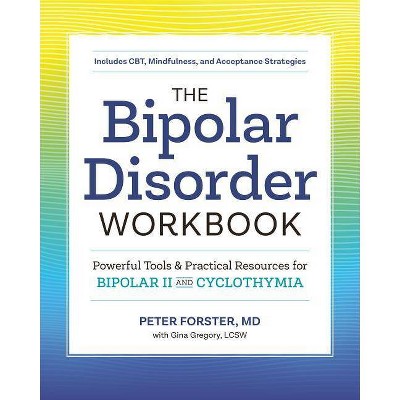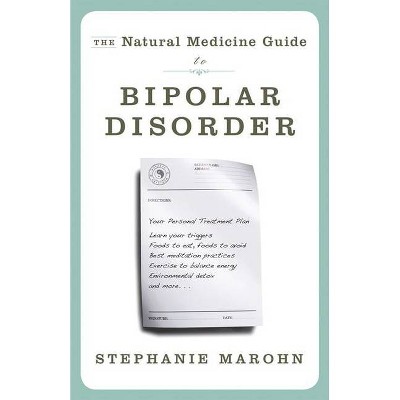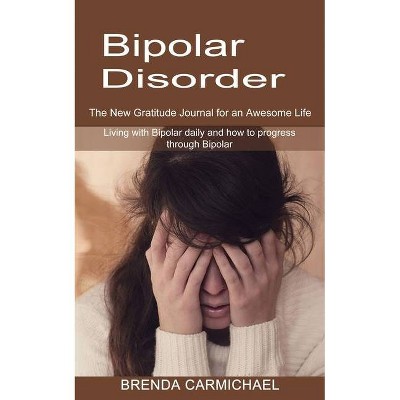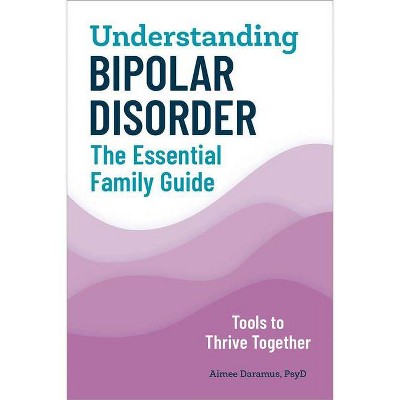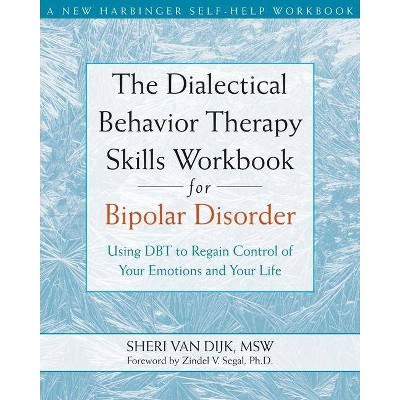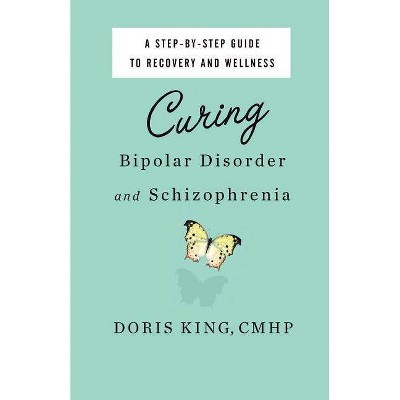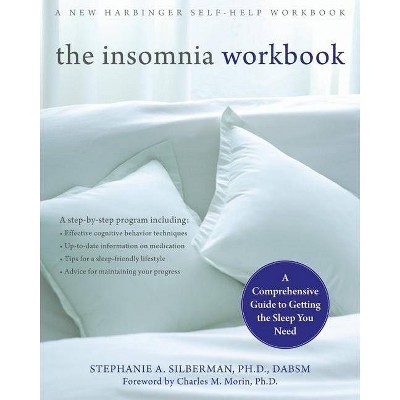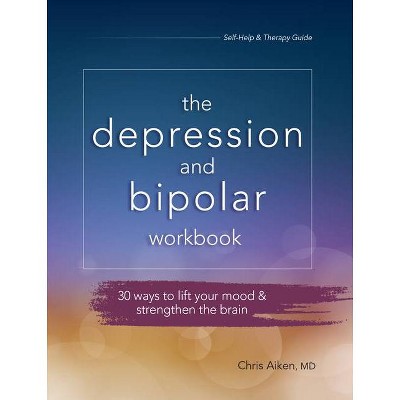The Bipolar II Disorder Workbook - by Stephanie McMurrich Roberts & Louisa Grandin Sylvia & Noreen A Reilly-Harrington (Paperback)
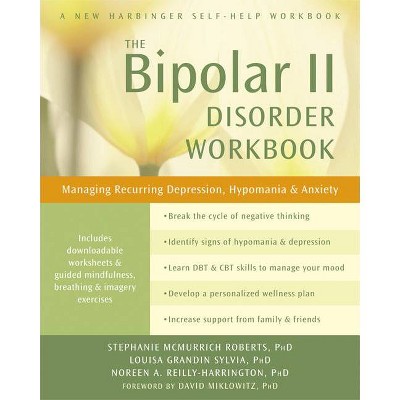
Similar Products
Products of same category from the store
AllProduct info
<p/><br></br><p><b> About the Book </b></p></br></br><strong>The Bipolar II Disorder Workbook</strong> is designed to help readers manage recurring depression, hypomania, and anxiety associated with bipolar II disorder. This user-friendly self-help workbook draws on evidence-based cognitive behavioral therapy (CBT), dialectical behavioral therapy (DBT), and other mindfulness-based approaches to help those suffering from bipolar II disorder live more normal lives.<p/><br></br><p><b> Book Synopsis </b></p></br></br><p> Most people have heard of bipolar disorder, a mental health condition that is marked by manic episodes and periods of intense depression. Bipolar II disorder differs from bipolar I in that sufferers may never experience a full manic episode, although they may experience periods of high energy and impulsiveness (hypomania), as well as depression and anxiety. If you have been diagnosed with bipolar II, or even if you think that you may have this disorder, you may be frightened by the highs and lows of your intense emotions. Fortunately, there are proven-effective treatments that can help you find a sense of calm and peace of mind.</p> <p> Written by an extremely accomplished team of bipolar experts, <strong>The Bipolar II Disorder Workbook</strong> is designed to help you manage the recurring depression, hypomania, and anxiety that can arise as a result of your condition. The convenient workbook format combines evidence-based cognitive behavioral therapy (CBT), dialectical behavioral therapy (DBT), and other mindfulness-based exercises to help you manage your emotions, track your progress, and ultimately live a happy and more productive life.</p> <p> This is the first self-help workbook available specifically for individuals diagnosed with bipolar II disorder.</p><p/><br></br><p><b> Review Quotes </b></p></br></br><br>"What a great book! By combining education, tools for self-monitoring, and step-by-step treatments, the authors have created a resource for patients and families with bipolar II disorder that will be used again and again. Roberts, Sylvia, and Reilly-Harrington are skilled therapists, and this workbook is like having access to them any hour of the day. <br>--<strong>Michael J. Ostacher, MD, MPH, MMSc</strong>, assistant professor of psychiatry in the department of psychiatry and behavioral sciences at Stanford University School of Medicine, CA, and associate director of the bipolar disorder and depression research program at the Veterans Affairs Palo Alto Health Care System in Palo Alto, CA, where he is also director of the Mental Illness Research Education and Clinical Center (MIRECC) fellowship program<br><br>"[The authors] have provided patients with an essential map and guidebook for people with bipolar II disorder who, by no fault of their own, have become strangers in a strange land. This book includes essential tools that can help people manage their disorder and find their way to wellness and functioning."<br>--<strong>Andrew A. Nierenberg, MD</strong>, professor of psychiatry at Harvard Medical School, director at the Bipolar Clinic and Research Program at Massachusetts General Hospital, and associate director of the Depression Clinical and Research Program at Massachusetts General Hospital <p/><br><br>"Bipolar II is a lifelong and often difficult challenge for those who have the disorder and those who care for them. But <em>The Bipolar II Disorder Workbook</em> will help you cope by teaching you how to notice your mood changes, how to turn around your depression or hypomania, and how to help others understand what you are going through. This workbook will give you the tools to work on [managing] your disorder. Written in a clear, easily accessible style, with lots of self-help forms and techniques, this book will be of use whenever things get too high or too low. I highly recommend this very useful guide."<br>--<strong>Robert L. Leahy, PhD</strong>, director at the American Institute for Cognitive Therapy, associate editor at the <em>International Journal of Cognitive Therapy</em>, and clinical professor of psychology at Weill-Cornell University Medical College, New York Presbyterian Hospital<br><br>"I highly recommend this book. The authors--leading researchers in this field--have provided a great service to individuals suffering from bipolar II disorder, their families, and mental health care professionals. Useful as a guide and workbook, this book can be used by individuals seeking to learn about the disorder individually, or as a tool in therapy. This concise and very approachable book condenses the latest research on the treatments for bipolar II disorder, helps readers to understand what is unique about this disorder, and reviews the best treatments available. There are excellent chapters on the management of depression, mania, and anxiety that are filled with good advice and practical, problem-solving techniques that will immediately be helpful."<br>--<strong>Edward S. Friedman, MD</strong>, associate professor of psychiatry at the University of Pittsburgh; director of the Mood Disorders Treatment and Research Program at the University of Pittsburgh; and director of cognitive behavior therapy and adult ambulatory pharmacotherapy training programs at Western Psychiatric Institute and Clinic, Pittsburgh, PA<br><br>"This is a great resource for the many patients and professionals who seek better ways to manage bipolar disorder but don't want to reinvent the wheel or waste time searching for tools. We owe the authors our thanks for assembling a treasure trove of excellent tools and the instructions necessary to put them to effective use."<br>--<strong>Gary Sachs, MD</strong>, associate clinical professor of psychiatry at Harvard Medical School in Boston, MA<br><br>"This workbook is grounded in cutting-edge research for treating mood and anxiety disorders, but distills this broad literature into a user-friendly set of skills specific to managing bipolar disorder, type II. Roberts, Sylvia, and Reilly-Harrington give readers tools that they can apply to their own lives to feel better, such as education about bipolar II and ways to manage negative thinking, temper anxiety, gain social support, and develop a comprehensive wellness plan. This book is a must-read for anyone whose experience of mood disturbance is an obstacle to leading a fuller life."<br>--<strong>Lauren B. Alloy, PhD</strong>, professor, Joseph Wolpe Distinguished Faculty Fellow, and director of clinical training at Temple University, Philadelphia, PA<br><br>"With refreshingly clear language, three experts in the field draw from the best science in the area to provide a clear road map for how to come to terms with bipolar II disorder. This book offers great advice on how to recognize and gain better control over manic, depressive, and anxious symptoms."<br>--<strong>Sheri L. Johnson, PhD</strong>, director at Cal Mania (Calm) and lab professor of psychology at the University of California, Berkeley<br><p/><br></br><p><b> About the Author </b></p></br></br><strong>Stephanie McMurrich Roberts, PhD</strong>, is a clinical psychologist specializing in the cognitive-behavioral treatment of mood and anxiety disorders. Roberts has published a number of peer-reviewed articles related to bipolar disorder and depression. A former instructor in psychology at Harvard Medical School and staff psychologist at the Massachusetts General Hospital Bipolar Clinic and Research Program, she now works in private practice in Boston, MA. <p/><strong>Louisa Grandin Sylvia, PhD</strong>, is associate director of psychology at the Massachusetts General Hospital Bipolar Clinic and Research Program and assistant professor at Harvard Medical School. Sylvia is a skilled cognitive-behavioral therapist who develops psychosocial interventions for bipolar disorder. She is currently examining the efficacy of nutrition, exercise, and wellness therapy for bipolar disorder. Sylvia has presented her work at local, national, and international conferences, and has authored many empirically-based articles on the treatment and prevention of bipolar episodes. <p/><strong>Noreen A. Reilly-Harrington, PhD</strong>, is an internationally recognized expert on the cognitive-behavioral treatment of bipolar disorder and has coauthored several books and numerous scientific articles on bipolar disorder. For the past seventeen years, she has been on the staff of the Massachusetts General Hospital Bipolar Clinic and Research Program and on the faculty of Harvard Medical School. She has trained thousands of clinicians for academic and industry-sponsored studies in the assessment, diagnosis, and treatment of bipolar disorder, and currently serves as the director of training and assessment for the Bipolar Trials Network. <p/>Foreword writer<strong> David J. Miklowitz, PhD</strong>, is professor of psychiatry in the division of child and adolescent psychiatry at the University of California, Los Angeles's Semel Institute; a senior research fellow in the department of psychiatry at Oxford University; and the author of several articles and books on bipolar disorder and schizophrenia, including <em>The Bipolar Disorder Survival Guide</em>, an international best seller.
Price History
Cheapest price in the interval: 18.59 on November 6, 2021
Most expensive price in the interval: 18.59 on December 20, 2021
Price Archive shows prices from various stores, lets you see history and find the cheapest. There is no actual sale on the website. For all support, inquiry and suggestion messages communication@pricearchive.us
